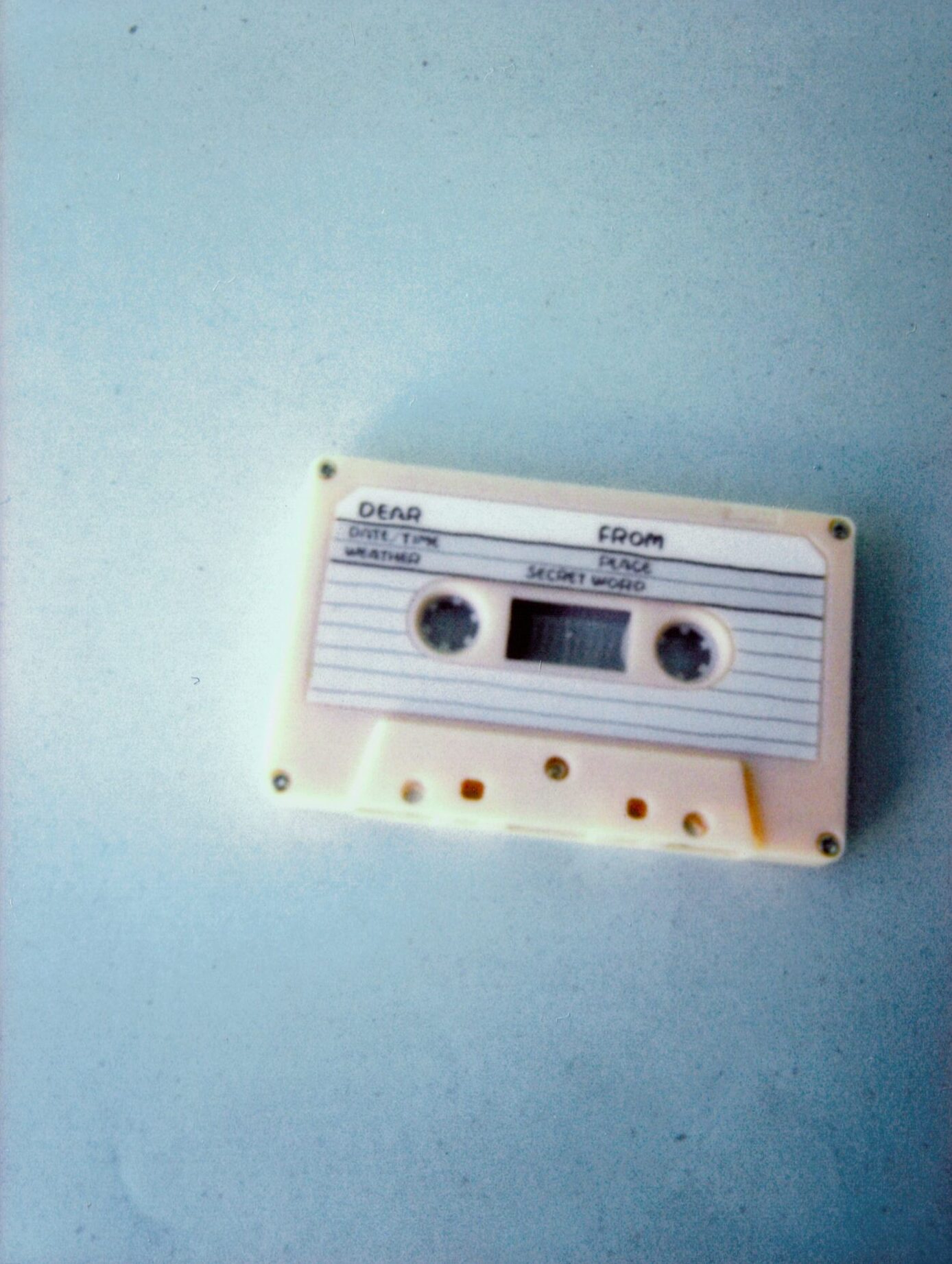It feels like most of my blog posts end up being about music. I’d like to pretend that this post is a piece of an annual tradition in which I review and analyze my listening patterns from the past year, but truth be told, I’ve only done this once before, in 2015, and then kind of early in 2020, when I reviewed my favorite albums from the last ten years. Truth is, I’d like this to be a tradition, a habit I develop, but I’ve had about as much success with that as I have with my resolution to exercise more regularly.
I don’t need to explain that 2020 has been a unique year. If I put on my English major bullshitting hat, I can maybe postulate that I write about music in the years that music was especially important to me. In 2015, music was the backdrop of my first (and current) serious, long-term relationship. I exchanged stolen moments and mix CDs, so the music I was listening to at that time became a sense-memory trigger, a nostalgic sound that brought me back to first kisses and early butterflies. And when I wrote about my favorite albums released from 2010 to 2019, I was making sense of my teenage years — the music that comforted me, changed me, channeled me. It only seems natural then to write about the music in this weird, mixed up year, because quarantine has made a process that’s usually internal for me — listening to and thinking about music — more weighty, more important. I’ve had more time to focus on media like music because there’s not much else to do. I’m spending more time alone in front of my computer than any person normally should. My screen time (which means music time) this past year has probably rivalled the internet addiction of my teen years.
I’ve also used these posts to discuss how I listen to music in some way. Sparked by the shutdown of Google Play Music, which was my preferred way to sync my massive music library to my phone, I moved over to Plex and the Plexamp mobile app. It thankfully offers excellent last.fm support, so I continued scrobbling there, but I didn’t set it up until a few weeks into my Plex journey — so a lot of play counts are probably lower than they should be. Still, the numbers paint an accurate picture, even if the exact details are muddy.
That all said, let’s get to the wheat and away from the chaff. Here’s the list of music I was listening to in 2020 that wasn’t necessarily released in 2020.
Mac Miller (1469 plays)

Movin’ so fast the clock look slow
Water my seeds ’til the flowers grow
Love so much that my heart get broke
I don’t really know how the normal shit go
Mac Miller, “Wings”
When I wrote about Swimming last year, I was cautious. I knew it was an important album and that it was a gateway for me. I knew there were some phenomenal tracks and impressive flows. A year later, I’m much more effusive in my praise (and critical of the songs I listed as the best — I did not appreciate “Wings” or “Dunno” as they deserve). I’ve moved from my “mac miller songs i think i like but idk” playlist to one titled “i need to listen to something other than mac miller,” partly at my boyfriend’s request, because I truly didn’t listen to much other than Easy Mac with the cheesy raps this year.
Part of the appeal of Mac Miller’s music is the variation in his discography and skillset. His abstract jazz EP You, for example, is bookended by the experimental, depressive Macadelic, released eight months prior, and Watching Movies with the Sound Off, which is perhaps his strongest rap album released (rivaled perhaps by GO:OD AM, but that’s a conversation for folks who know way more about rap than me to debate). It’s unfortunate that Mac’s career lasted as little time as it did, cut short by his death in 2018, but he produced an incredible amount in that time — and much of it has yet to see the light of day. There are days I’m looking for early career Mac, the Blue Slide Park and Best Day Ever era, when the world was before him and he was ready (and excited to) conquer it; there are days when the smooth romanticism of Circles and The Divine Feminine are appealing; and there are days when I need the emotional catharsis of his more complicated releases, like Faces or Swimming — two very different releases, but releases that reflected on the complications of fame, depression, and addiction. It is remarkable that one artist who died so young gave the world so much.
Unsurprisingly, my top track from this past year was by Mac: “God is Fair, Sexy Nasty (feat. Kendrick Lamar)” (65 plays) from 2016’s The Divine Feminine. I listened to this song on repeat on my drives to work (back when I was driving to work) in late-2019 into 2020. I memorized every line. The song is a beautiful marriage of the soulful elements of love and the physical side — the sexy and the nasty. It’s a tremendously fun song with layered production and samples, and while I skip it most of the time, the outro of Miller’s grandmother reflecting on her late husband is a goofy but earnest addition that, when considered among all of TDF, yearns for a long love, an old love, where one’s partner completes and complements them over decades of companionship (“We gon’ keep going ’til our bones both break / It’s the grown folk way”).
I did dive into the unreleased leaked tracks by Mac this year, too. It’s a complicated, controversial subject, because it’s unclear whether these songs have been obtained through nefarious means, and friends of Mac’s have said that the leaks have made things difficult for the late rapper’s family. But so many of these songs need to be heard — they show Mac at his most vulnerable in songs like the beautiful, tragic “Pure” (40 plays), where he raps a letter to himself, reflecting on his material success, drug use, and emotional health (“Everybody got opinions when you make millions / All God’s children, let me keep livin’ / I been keepin’ it real / I can’t sleep without pills … I been dealing with some problems, I been longing for your love / Crazy selfish doing drugs / Check off all of the above”).
Everything about Mac’s music speaks to a need. A need, for him, to share the world in his head; to find his way out of the darkness. It’s difficult to reconcile the wound of his death; the leaks are a band aid, but there’s something bittersweet in hearing him spit about the addiction that killed him. I find ways to push that reminder out, but many of his songs are steeped in the awareness that his lifestyle would kill him (“Am I okay? / Fuck no / Just so nutso / I need to let the drugs go / I try to find heaven, I get high but never come close”). But we can at least appreciate the beauty he was able to put in the world when he was here. I sometimes feel guilty listening to songs like “Pure” because Mac may have never intended for anyone but him to hear them. It feels wrong to intrude on that, but as “Oracle” (12 plays) concludes, “the people need to hear the music.”
Top & Notable Tracks: “God is Fair, Sexy Nasty (feat. Kendrick Lamar)” (65 plays), “Do You Have a Destination?” (54 plays), “In the Air” (47 plays), “Thoughts from a Balcony” (44 plays), “Dunno” (41 plays), “Pure” (40 plays), “Wedding” (39 plays), “Wings” (28 plays)
Martha (283 plays)

It is no secret that I am an avid indie rock fan, and Martha was my sojourn in that world. When Bandcamp Fridays first started up, Martha offered their entire discography plus a bonus album of demos for a discounted price. I jumped on it purely on the knowledge that they had toured with Los Campesinos! a few years back. I was not disappointed. Martha’s music is uncomplicated fun, with the breathlessness and, at times, incoherency of early Cloud Nothings. They shine with absolute bops like “Clatty Harriet” and the bright optimism of “Wrestlemania VIII” (“It’s like a cloud was hanging over me until the day we texted for the first time / And the world just got a little brighter”) and “Six Men Getting Sick Six Times (Mendable)” (“There’s a world outside where I feel so broken / But you make me feel mendable”).
There’s an effortlessness and easy appeal to Martha’s music. It’s inoffensive, in a good way — you know exactly what you’ll get with Martha and they deliver on your every want and expectation. Martha is an easy recommendation to make because just about everyone will like Martha. Martha sounds like a fun group of friends got together to make fun indie rock. In 2020, I needed that.
Top & Notable Tracks: “1967, I Miss You, I’m Lonely” (17 plays), “Six Men Getting Sick Six Times (Mendable)” (15 plays), “Clatty Harriet” (13 plays), “Heart is Healing” (6 plays)
Trust Fund (180 plays)

Trust Fund again lends itself to my love of indie rock. I’m pretty sure I also discovered them through the Los Campesinos! tour connection — but even before that, I began listening to The Peripheral Ones, a cover band for The Middle Ones that I have previously evangelized. The Peripheral Ones led me to Pigthe, who surprisingly did not chart in my top ten this year, and a month or so later, I started listening to Trust Fund. It wasn’t until a few years later that I learned that the mastermind behind Pigthe is also the guitarist in Trust Fund.
Trust Fund therefore offers a similar sound to what I love in The Peripheral Ones: a bedroom rock group with an intimate yet catchy sound. I’m not sure when — if it was in 2020 at all, because time is an illusion — but at some point, I purchased Trust Fund’s entire discography, too, this time based off of my love of “Cut Me Out” from No one’s coming for us. At some point this year, in my unsuccessful attempts to listen to more than just Mac Miller, I put my entire 97GB music library on shuffle to find some underappreciated gems. This turned up a few Trust Fund songs, which I placed on the aptly named “songs in my library that i genuinely have never heard” playlist. This included such gems as “we’re thirteen (and we’re drinking) and “Abundant” among a few others.

The playlist ended up composed more of a Trust Fund shuffle than full music library, admittedly. While this anecdote maybe speaks more to my goblin-like hoarding of music than my fondness for Trust Fund, these are the kinds of connections and discoveries I live for. I love stumbling upon something new, something saved long ago that ended up becoming relevant again years later. Trust Fund did that, and they were able to stick more than a few songs and hooks in my head this year (“I’m alone in the house / and I’m freaking myself out again / I’m clapping my hands and I’m spinning my arms around”). They’re just catchy.
Top & Notable Tracks: “we’ll both apologize” (35 plays), “Dreamers (Stefano Guitar Demo)” (32 plays), “Sadness (demo)” (32 plays), “we’re thirteen and we’re drinking” (32 plays), “Abundant” (28 plays)
Aether (175 plays)

Aether is the moniker of Diego Chavez who, in brief, creates awesome downtempo hip-hop instrumentals. I first stumbled upon his music in 2013, when I scrobbled his album Artifacts (2008) an impressive 542 times. This was around the time that I was on the computer near constantly and liked downtempo hip-hop as my background working and writing music (shouts out to Emancipator and Little People, who also fall into this category). I more or less forgot completely about Aether until this year, when “Caparra,” an old favorite, popped up in a shuffle. I thought to myself, “why not find out what this guy has been up to in the last seven years?”
As it turns out, he’s done a bit — Chavez has a Soundcloud where he occasionally posts tracks. But because I’m old now and don’t fully understand Soundcloud, I decided to snag his 2014 release, Solace. I was absolutely blown away by the title track (and first song on the album), and I listened to it on repeat for more than a while this year. The rest of the songs on the album are also great, but they blend together — which isn’t necessarily bad for working music. “Solace,” though, is the standout and deserves to have the album named after it. It’s incredible — the catchy, consistent beat, the abstract melodies, the skittering vocal sample all coalesce into a beautiful breakdown around the two-and-a-half-minute mark. It’s an absolute dream of a track that slowly builds then delivers.
Top & Notable Tracks: “Solace” (12 plays), “Untouched” (8 plays), “Tomorrow’s Thief” (8 plays)
Tokyo Police Club (131 plays)

I was listening to Tokyo Police Club demos on my iPod Nano back in 2009 — that’s how far back my relationship with TPC stretches. Another indie darling, I’ve enjoyed the group for some time now, but they dropped off my radar for a few years. This past year, however, one of the many shows I re-binge-watched was Gossip Girl, which features “Bambi” in an episode. It has a delicious and catchy guitar riff that shines through the Chuck Bass melodrama, and I was pleased when I realized the song was by a band I already liked. I went back and downloaded 2010’s Champ after this discovery and kept it on play for a few weeks.
Champ is not a big departure from my past affairs with Tokyo Police Club — I was most familiar with Elephant Shell, which released two years prior. Champ features the same clean, catchy sound, but tightened up a bit. It retains the fun, catchy sound from Elephant Shell but matures and adds definition. Funnily enough, the 10th anniversary edition was announced in early December and will release in March of 2021. The list of bonus tracks is impressive — maybe Champ will make my list again next year.
Top & Notable Tracks: “Bambi” (17 plays), “Favourite Food” (12 plays), “Breakneck Speed” (8 plays), “Not Sick” (13 plays)
Jean Dawson (104 plays)

Jean Dawson is an artist who made me feel old this year.
After seeing Dawson described as “glitch pop,” I knew I had to find his 2020 release, Pixel Bath. Unfortunately, Dawson is in this new artist milieu who seem to release their music only on streaming services and vinyl — so if you’re like me and avoid services like Spotify or Apple Music, you’ll be hard pressed to find a way to actually legitimately pay for a digital download. I forgive Dawson because it seems he is interpedently releasing music under his own label, but there are old people out there (me) who like to have digital copies of their music (me again).
Anyway, Pixel Bath is a more recent addition to my library, but I’m loving it. It mixes so many different genres — hip-hop, rap, R&B, powerpop, glitch pop (which is apparently a genre) — in a cascade of sounds and styles. It’s an absolute joy to listen to, with some stand out bangers like “POWER FREAKS” and “Policia.” The former is a favorite of mine, luring you in with a slow, repeated melody until it rushes in with high power, fast rhymes that reflect on the experience of young black men watched by the police. Pixel Bath is filled with unapologetic, boyish, raucous energy, like a paintball match that uses a Gameboy Color soundfont and speaks to Dawson’s experiences as a mixed-Black and Mexican teenager in the US. It’s an important album and a fun album.
Top & Notable Tracks: “POWER FREAKS” (20 plays), “Pyrotechnics” (17 plays), “BRUISEBOY” (12 plays), “Policia” (12 plays), “Starface*”(12 plays), “Devilish” (10 plays), “CLEAR BONES” (8 plays), “Triple Double (feat. A$AP ROCKY)” (7 plays)
Miscellaneous Songs
Those were some of my top, new (to me) artists for the year, but there a few songs I would be remiss not to mention for my 2020 compilation.
“celine” by Shypig (56 plays)
This is one of the songs that I’m not totally sure how I found — I think it was from associated acts with Trust Fund and Pigthe — but I’m so glad I did. Unfortunately, there’s very little information to be found about shypig online — their Bandcamp bio helpfully explains that they are “a shy pig.” “celine” is a dark, mysterious, angsty track that absolutely rips. It haunted me for days, with its cryptic lyrics and obsessive atmosphere. It’s befitting of the RIP everyone album title, at least, and something about shypig’s elusive nature adds to the darkness of “celine.”
“Get Away” by The Internet (46 plays)
I found The Internet through Mac Miller, as they acted as his backing band for Live from Space — as a group, The Internet have released lots of smooth grooves befitting of a jazz lounge. Those tracks haven’t grabbed me, though I can appreciate them for what they are, but “Get Away,” particularly the version from their Tiny Desk Concert, is absolutely phenomenal. It’s simple and pared back compared to the album release, which allows The Internet to inject some of their typical groove into the dark beat of the original. Both are absolute bops, but the Tiny Desk version has a lightness and humor to it that I relished.
“Ring Ring (feat. Clever)” by Juice WRLD (17 plays)
Juice WRLD probably would have charted higher on my list if I’d started listening to him earlier in the year — he snuck into my library in mid-December, and I’ve been working my way through his discography since then. “Ring Ring” is a catchy jam that I keep returning to. Like with Mac Miller, Juice WRLD can be difficult to listen to — “Ring Ring” is a bittersweet song when considered in the context of Juice’s death, but I’ve found a way to shake that off and appreciate the music left behind, not the tragic cap on the end of it.
“I’ll Believe in Anything” by Wolf Parade (25 plays)
This is another song I’ve stumbled upon in a bizarre web of unintended musical connections. I found this song through reddit — some Ask Reddit thread I think where folks were recommending songs — and fell in love with it. But there was something familiar to the vocals — come to find that it was Spencer Krug, who originally recorded and released the song under his Sunset Rubdown moniker, a band I’ve been listening to for years. The Wolf Parade version is inarguably superior, as it’s a fully fleshed out track. “I’ll Believe in Anything” is a song about love — about keeping hope alive, about fighting for and finding happiness. It offered a lightness I scarcely found in 2020, a reminder of the things that keep me strong and the things that bond us all together. It’s a beautiful song.
We’ve both been very brave
Walk around with both legs
Fight the scary day
We both pull tricks out of our sleeves
But I’ll believe in anything
And you’ll believe in anything
Wolf Parade, “I’ll Believe in Anything”

Leave a Reply